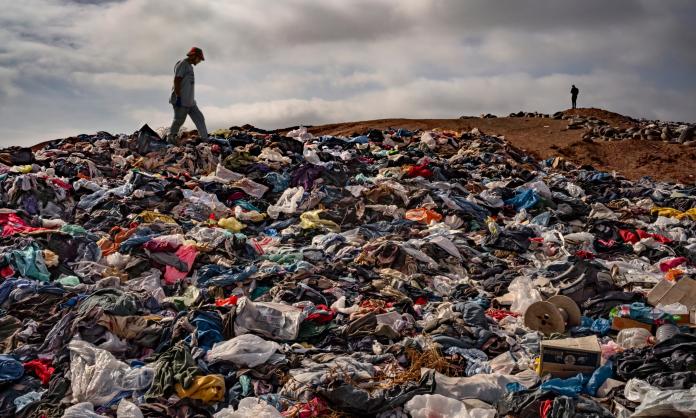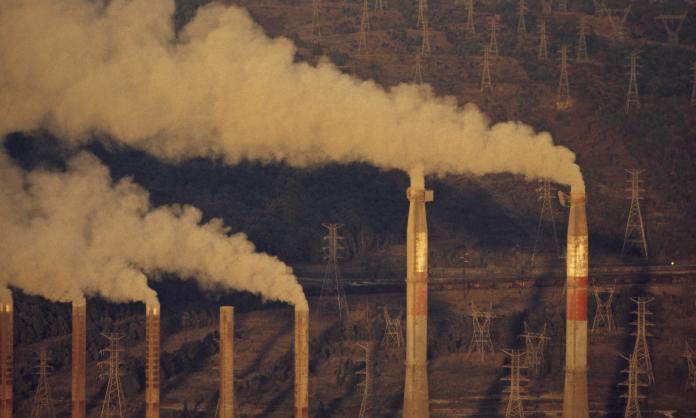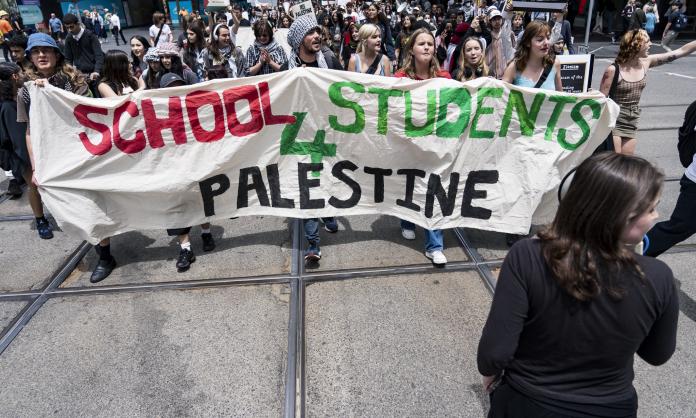The headlines in the world press say it all. The Washington Post: “Chile’s Violence Has a Worrisome Message for the World”. The Economist: “A surge of public anger sends Lebanon’s politicians reeling”. And on 25 October, the Guardian summed it up with: “Protests rage around the world”.
The protests are massive. It’s said that 1.3 million spilled into the streets of Lebanon’s cities on Sunday 20 October; that’s 20 percent of the population. Time and again for months, protesters on the tiny Island of Hong Kong have disrupted its airport, shopping malls and finance districts, sometimes in gatherings of up to a million. On 25 October, after defying tanks in the streets under a state of emergency for a week, more than a million filled the streets and plazas in Chile’s capital city, Santiago.
They’re international, rolling around the globe for months: Sudan, where a revolutionary wave toppled the dictator in April; Hong Kong, Catalonia, Chile, Lebanon, Ecuador, Haiti, Bolivia, Guinea. In the Arab world, where counterrevolution rides supreme after the defeat of the “Spring” of 2011, there are stirrings even in Egypt, which has faced some of the region’s most terrible repression over the last six years. In the hell the US created in Iraq, tens of thousands were back in the streets of Baghdad to protest against corruption, economic hardship and the sectarian political system – even after 149 protesters had been killed by police.
A common identity is emerging from the turmoil, based on a shared sense of rebellious hatred of the rich and powerful, imbued with internationalism. Protests in one country inspire others, leaping national boundaries, creating solidarities across cultures – connections that only six months ago were unimaginable to most people.
Hong Kong protesters sing a song (in Cantonese translation) that originates with the Chilean workers’ movement’s revolutionary upheavals of the early 1970s, “El pueblo unido jamás será vencido” (the people united will never be defeated). Lebanese and Chilean marchers carry Catalonian flags in solidarity with the Catalan people’s struggle for autonomy against the Spanish state. Alaa Saleh, 22, pictured on top of a car addressing a huge crowd in Khartoum in April, touched the hearts of millions. In Lebanon in late October, a woman who kicked a government minister’s bodyguard in the groin was immediately likened to Saleh. Some protesters reference the gilets jaunes (yellow vests) protests in France nearly a year ago.
They are angry and defiant. Tear gas, rubber and live bullets, thousands of arrests and brutality by police and soldiers cannot intimidate populations that have found their voice. As they chant in Chile in response to president Sebastián Piñera’s declaration that “Chile is at war”, “Chile despertó”: Chile has awoken! Or in Lebanon, simply: “Revolution! Revolution!”
In 1848, Karl Marx and Frederick Engels began their Communist Manifesto for an emerging European workers’ movement with these words: “A spectre is haunting Europe – the spectre of communism. All the powers of old Europe have entered into a holy alliance to exorcise this spectre”.
They ended with the rallying cry: “Let the ruling classes tremble ... The workers have nothing to lose but their chains. They have a world to win. Workers of all countries, unite!”
Marx and Engels were inspired by revolutionary movements sweeping Europe. Today, globalised capitalism is haunted by the same spectre, revived by these millions shaking those chains of oppression.
It’s easy to see why this can be so. Marx and Engels wrote about the drive by capitalism to dominate the world. They wrote of the fabulous wealth the system could create, the marvellous technological breakthroughs. But they warned that inequality, mass misery and environmental degradation were the natural conditions of the system.
For more than four decades, country after country has been ravaged by neoliberal policies designed to make the mass of workers and the poor pay for what is a growing crisis in the system. It is as if Marx foresaw neoliberalism when he wrote in Capital: “Capital ... vampire-like, only lives by sucking living labour, and lives the more, the more labour it sucks”.
Protesters tell the international media about “the straw which broke the camel’s back”. A tax on WhatsApp calls, an increase in public transport fares and cuts to fuel or food subsidies seem trivial to the rich who impose them. The spark differs, but the ever more inflammable tinder in which it flares is laid down by capitalist exploitation.
The Economist’s description of Lebanon is recognisable almost anywhere: “Their grievances are almost too many to list: electricity shortages, undrinkable water, collapsing infrastructure, a poisoned environment. The economy is stagnant and corruption is rife”. There is anger all over the world at inequality, injustice, rising prices for electricity and fuel and food, stagnation or even cuts in wages, slashed pensions and crumbling health and education systems. Unemployment cripples the lives of millions. In Lebanon, one in three under 35 cannot find work.
Until Chile “woke up”, it was held up by media commentators, investors and politicians as the most stable, wealthy economy in Latin America. But the day before a general strike swept the country on 23 October, John Authers, a senior editor at Bloomberg, warned: “If it can happen in Santiago, it could happen anywhere. That is the uncomfortable message that the rest of the world should take from the sudden breakdown of civil order in Chile”.
Uncomfortable for some. But it should be a clarion call to the rest of us. Here in Australia, official unemployment is low, but one university professor reports that official but hidden figures tell another story. In March, professor Kristy Muir of UNSW and the Centre for Social Impact noted that Australia “has had 27 years of unprecedented economic growth where one in three people in poverty who are of working age are employed – meaning their wages are not sufficient to get them out of poverty”. One million are “underemployed” – they cannot get the number of hours of work they want.
A warning sign which should have Australia’s rich and powerful trembling is that one in three of the underemployed are under 30. Students from high schools and universities have led rebellion after rebellion around the world. And hundreds of thousands, called out by school students, spilled into Australia’s streets in September demanding more be done to deal with climate change.
The ruling classes should tremble. They have no solutions to the sickening state of the world their system has brought us to. They have mouthpieces in national and international media happy to peddle their lies about sinister “outside” forces supposedly whipping up the movements. But when these are ignored as the fantastical myths they are, when their citizens reject their promises of reforms as unbelievable, calling instead for the resignation of governments, they have massive forces armed to the teeth to shore up their grip on power.
Everywhere, the mass of workers, students, the poor and oppressed face this common enemy. Everywhere, humanity is confronted with a system which has always been chaotic and crisis-prone, and now is in an ever more catastrophic crisis of society and the natural environment.
Our side urgently needs a consciously anti-capitalist movement. That movement needs to learn from struggles of the past. Relying on those who want simply to reform this rotten system has always led to disasters like that which transpired in Chile in 1973. Then, the radical Socialist Party government of Salvador Allende refused to confront the power of the capitalists, while the army prepared a coup. Workers were convinced to dismantle their own revolutionary institutions, and to give back to the capitalists control of the factories that the workers themselves had taken over. Capitalism and its political structures were left intact, and the military were able to launch a right wing coup – using torture and murder to turn Chile into the neoliberal economy that is facing a renewed rebellion today.
Now in Lebanon, after eight days of protests dominated by the theme of unity between Shia, Sunni, Druze and Christians, Hezbollah, the sectarian Shia movement led by Hassan Nasrallah, was in the streets fighting protesters. Nasrallah declared the protests the work of conspirators and defended the government in which he sits.
Any movement of the oppressed will face organisations that aim to channel its discontent away from a revolutionary change and back towards the existing order. The movements need organisations which can counter the lies and the divisiveness of those intent on preserving the status quo. They need organisations which can bring together the most radical and class conscious, organisations which draw on historical knowledge of their own and historical battles to show the way to a revolutionary alternative.
We need organisations that can convince ever wider layers that the resignation of a government will not solve our problems. We need to create our own revolutionary bases of power which can take control. This is the only pathway to using the enormous wealth we see around us to rebuild society to satisfy human need instead of feeding profits.
Here in Australia, just like in Chile until a couple of months ago, the rich and powerful think they are secure. But when some unexpected issue “breaks the camel’s back”, how far we can push the struggle and what we can win will primarily depend on whether a radical, anti-capitalist organisation has been built.
The forces of the revolutionary left have been eroded by 50 years of demoralising defeats and the growth of the right. But the tide is turning. The task is to grasp the opportunity and begin rebuilding movements that can convince those who rise up to tear down the whole system.











